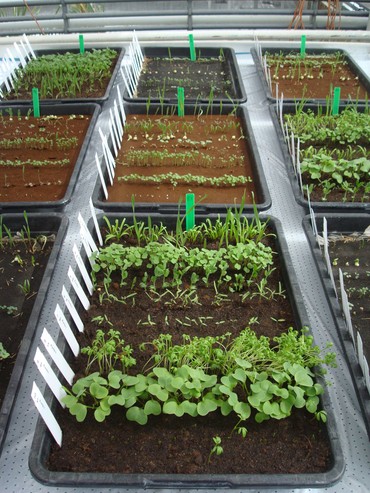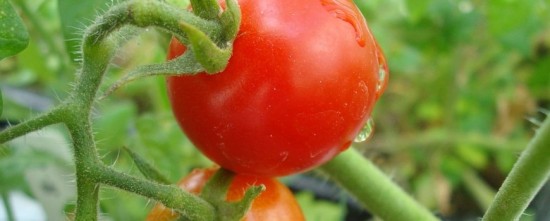March 12, 2016 – Since 2013 researchers have been experimenting with Earth crops grown in simulated Martian and Moon soils. How can we do this? We have detailed chemical and spectral analysis of both the soils on Mars and lunar regolith. We can find equivalents here on Earth and add organic matter and water and see what happens. We can even simulate the amount of solar energy that plants would receive from a more distant Sun on Mars.
At Wageningen University, The Netherlands, researcher Wieger Wamelink harvested a crop of radishes, peas, tomatoes (see the first Martian tomato in the image below) and rye grown in both simulated Martian and lunar soils. The yields were comparable to what we can grow here on Earth. But the jury remains out on whether these harvested foods are edible.
Why?
The simulated soils gathered from Hawaiian volcanoes for Mars and the Arizona desert for the Moon contain heavy metals including lead, cadmium, mercury, iron and arsenic. How much of these potential poisons get taken up by the plants’ stems and leaves and how much by the edible fruits and seeds? Until now anything grown in these simulations has remained uneaten. But Wamelink hopes through a crowdfunding campaign to produce a new crop from his simulations and then test the yields for edibility.
The plan is to work with peas, tomatoes, radishes and two other crops replicating growth cycles five times. Plants would be grown in a Martian soil simulation, lunar simulation and Earth-based control medium. All will receive plant and human fecal organic matter and water in equal amounts. All planting is in a controlled underground environment with an Earth-simulated atmosphere and lighting approximating each environment. Fruit and other edible parts of each plant will be harvested and analyzed for heavy metal content.
The research will not only tell us if we can safely produce food locally for future Martian and lunar colonies, but also should help us here on Earth where farmers have to deal with marginal soils equally laced with heavy metals.
The crowdfunding campaign goal is 25,000 Euros with about one-third raised to date and two months left to go. The plan is to start the experiment in April 2016. If you want to help you can donate by clicking on this link.










